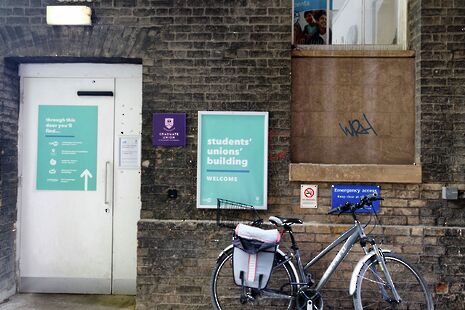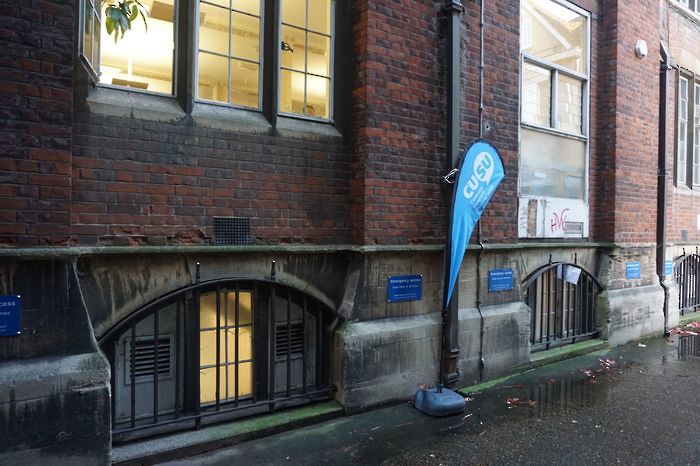CUSU elects new Part-Time Executive Officers
337 votes were cast over three days to elect seven new students to CUSU’s executive team

CUSU has announced its seven newly-elected Part-Time Executive (PTE) Officers, following a three-day voting period for the uncontested set of elections.
Voter turnout came in at 1.5%, with 337 votes cast out of over 22,000 eligible voters. This comes after CUSU saw its highest election turnout yet in last term’s elections, where 5,120 votes were cast to elect next year’s Sabbatical Officers, representing a 22.2% turnout.
CUSU PTE Officers, who have previously been elected in Michaelmas term, work alongside CUSU’s six elected Sabbatical Officers to campaign, represent and develop the union, as well as ensuring CUSU policy is enacted.
Rachel Johnston was elected as Campaign Officer for CUSU’s Access and Funding Campaign. In her manifesto, she stated that “Cambridge’s commitment to being an accessible institution cannot be something that is just championed in prospectuses and on open days”. She drew explicit attention to rent as an “access issue” and pointed to her experience working with the Murray Edwards’ Student Collective to tackle dissatisfaction surrounding rent in the College.
She also highlighted the wealth disparity between colleges and ran on a promise to facilitate discussions surrounding the centralisation of funds on a central university level.
Rory Kent and Ben Margolis were both elected Education Campaigns Officers, where two positions were available. Kent, a current MPhil student and student representative for the Department of History and Philosophy of Science, stated his aims for a “democratised and liberated education”. He promised to work to ensure that reforms concerning “the democratisation and decolonisation of our education” continue to take place.
Margolis, who has campaigned with Robinson Cut the Rent, the Living Wage Campaign, and with Cambridge Zero Carbon Society, emphasised the importance of “strong representatives in the student union aiding campaigns and societies in their work” in his manifesto. As well as resisting marketisation, Margolis outlined a policy of ensuring the opposition of the Prevent programme, “guaranteeing the free speech and safety of people of colour in the University.”
Both candidates put forward a commitment to decolonisation: Kent looks to ensure that such efforts go “beyond simple changes to reading lists to include more substantial re-evaluations of what we learn, how we learn it and why”, while Margolis intends to work with the Decolonise Network to ensure it is adequately represented within CUSU.
Aleph Ross and Tyra Amofah-Akardom were elected as the two Welfare & Rights’ Campaign Officers. Tackling high rent was the central focus of Ross’ manifesto, drawing attention to Cambridge’s position “as one of the wealthiest universities in the world” where many students “are struggling to afford basic necessities due to the extortionate cost of rent”.
WIth regards to rent campaigning, Ross pointed to their wish to focus on “strengthening connections between existing rent campaigns in Cambridge to build a university-wide movement, with the possibility of coordinated actions” in the upcoming year.
Tackling Prevent is one of Amofah-Akardom’s primary areas of concern. “The threat and misuse of Prevent violates both the welfare and rights of those students who it targets most”, she continued. She also referred to “facilitating links between students and staff” as her other primary focus, under a general aim of ensuring Cambridge is “a safe and happy environment for all”.
Kerensa Gaunt and Anna Ward were also elected Part-Time Students’ Officers. Rensa, the Executive for Part-Time Students this year, ran for re-election with Ward. A key manifesto point for the pair was tackling ‘Double Time’, a term used to refer to the University’s procedure which allows students to study their degree over a longer period of time and officially called ‘extension to period of study’. They highlighted their aims to petition the University to “end inconsistent treatment when going Double Time”, to publicise the Guide on Double Time created this year, as well as continuing to “raise awareness of Double Time as an option for students”. They also intend to petition to simplify the application process for Double Time.
No candidates stood to fill the positions of Mature Students’ Officer and Student Parents’ Officer, both of which were were also unfilled this year.
Committee elections for CUSU’s Class Act, Disabled Students’ Campaign, and Women’s Campaign were also held this week on separate ballots, where only students represented by the campaigns were permitted to vote. Laura Lewis was elected President of Class Act, beating out CUSU’s current Access and Funding Officer Shadab Ahmed by a margin of 60 votes.
 News / Right-wing billionaire Peter Thiel gives ‘antichrist’ lecture in Cambridge6 February 2026
News / Right-wing billionaire Peter Thiel gives ‘antichrist’ lecture in Cambridge6 February 2026 News / Cambridge students uncover possible execution pit9 February 2026
News / Cambridge students uncover possible execution pit9 February 2026 Features / From fresher to finalist: how have you evolved at Cambridge?10 February 2026
Features / From fresher to finalist: how have you evolved at Cambridge?10 February 2026 News / Epstein contacted Cambridge academics about research funding6 February 2026
News / Epstein contacted Cambridge academics about research funding6 February 2026 News / Churchill plans for new Archives Centre building10 February 2026
News / Churchill plans for new Archives Centre building10 February 2026











